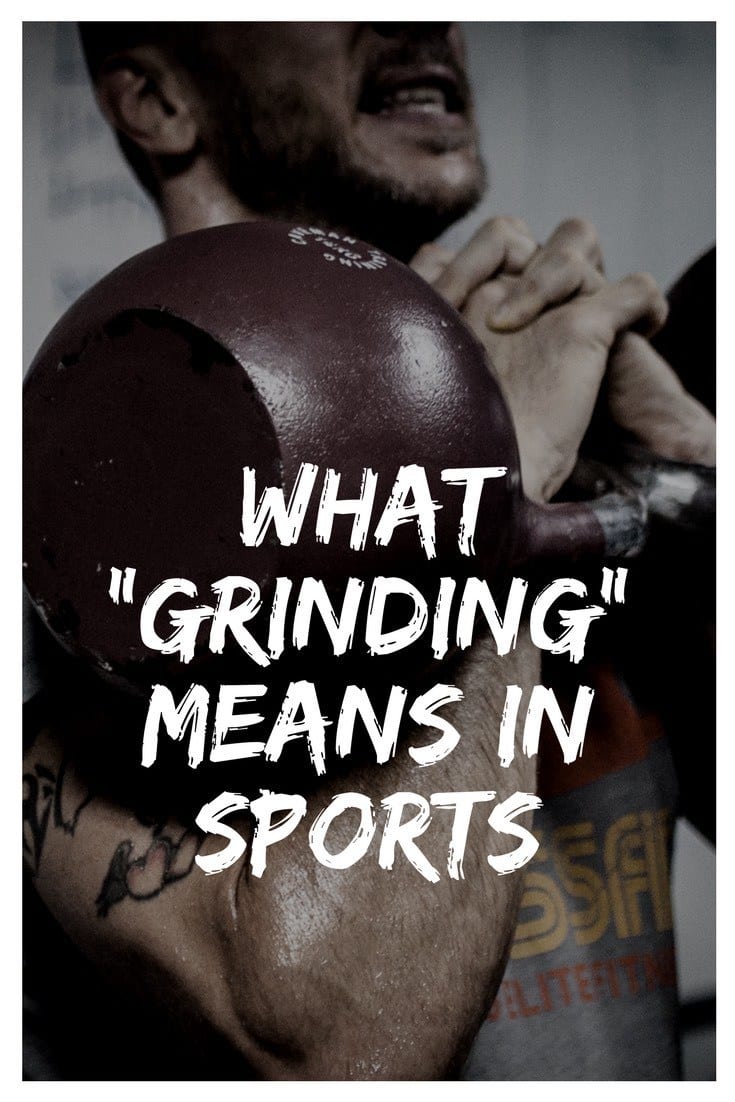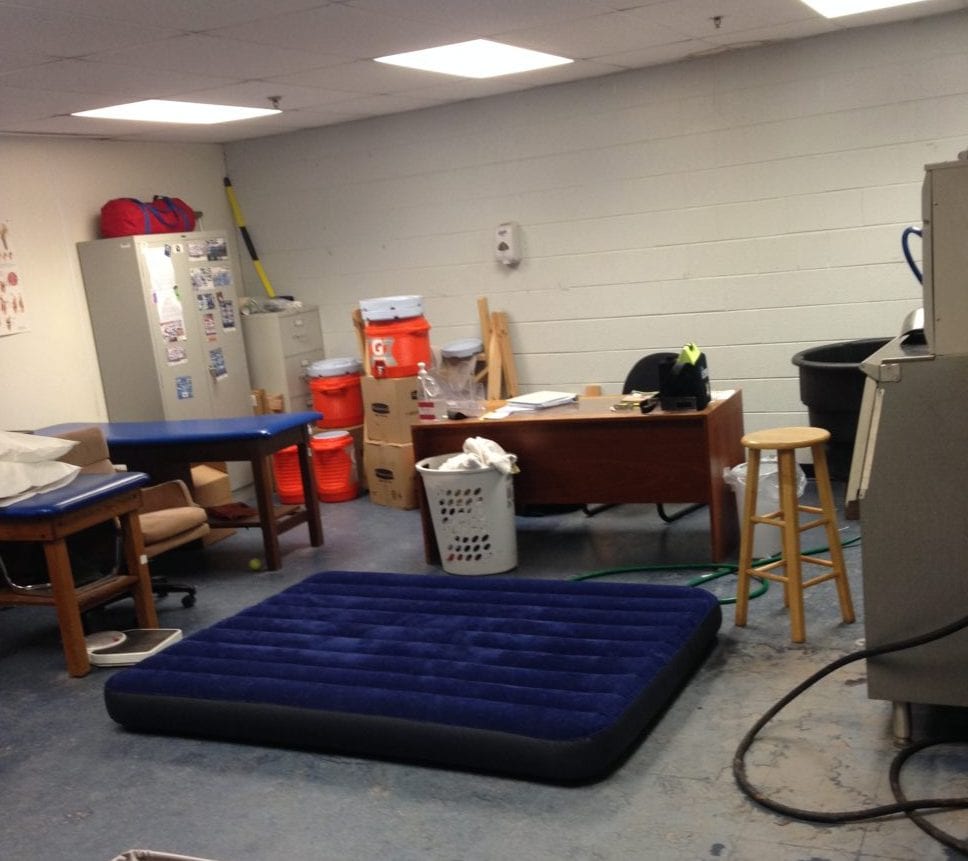*This article may contain product links which pay me a small commission if you make a purchase. Learn more.

The Grind
I’ve recently come to realize the GRIND and GRINDING is the newest hashtag fad. Young athletes snap photos of their workout and exclaim how they’re #grinding….they’re not. I’m going to explain what “The Grind” really is, and why I don’t like that it’s now used flippantly. Grinding means something to me that’s much bigger than the hashtags.

In sports, the term is most often used to refer to a very long, physically draining sports season. Baseball uses the term the most, being that it’s the longest season of any sport. It’s also aptly used to refer to rehabilitation from injuries.
I slept on that air mattress in that dirty training room. That was part of my grind.
The best dictionary definition I can find:
to move laboriously against a countering force
- Making it through the long season is a grind.
- Recovery from knee surgery is a grinding process.
What it Means to Me
I have a friend, Zach Clark, who fits the definition of a man who has grinded his way through a long baseball career. Zach is one of those guys who you’re proud to know because he exemplifies perseverance, exemplifies what it means to move laboriously against a countering force.
He played at four different levels in four different years – that was often because high-dollar prospects took his spot at higher levels, despite pitching well. He got moved up and down by the front office and never grumbled about it – he just kept on pitching and kept his head up.
He got called up to the big leagues and sent back down a few days later and told he’d have to convert to a knuckleballer. What he do? He did it; that’s what. And he’s still with Orioles, got resigned this year and won’t go down without a fight. He respects the Orioles, the Orioles respect him, and he keeps doing what he needs to be successful, even if it hasn’t paid off in full. Listen to the Dear Baseball Gods Podcast episode featuring Zach here.

And, what’s not included on his stats chart was the two labrum surgeries he recovered from in high school and college. I did his rehab throwing with him when he was a junior and I watched as he turned in one of the worst seasons of his life. I could see the frustration on his face that whole year. What did he do? He bounced back. Had a great senior season and signed as a free-agent. 10 years later he finally hung up his cleats.
And It’s Not Just In The Pros
Over a year ago volleyball player I’ve trained for a few years, named Maddie, suffered a PARS fracture and a herniated disk in her back. She had chronic back pain that only worsened. She also suffered from migraines and the doctors were uncertain about what was going on with her.

For those who haven’t had either, PARS fractures and herniated disks are both very painful and debilitating. They stop many strong, pain-tolerant people in their tracks. What did Maddie do?
She Trained.
She trained when she could, even though it was clear that she was in pain. She masked it well and made time to get stronger in movements that were tolerable. She didn’t make her elite volleyball team because she wasn’t in shape enough to compete because she was in too much pain to train properly. What did Maddie do? She kept #grinding.
She wasn’t able to do a lot of the jump training that both of us wanted – it simply aggravated her condition too much. As she got healthier, her vertical didn’t increase the way either of us wanted it to. Disappointed by her results, she still continued to train and didn’t miss workouts.
Fast forward a year and a half, and she’s pain-free on most days. She’s hitting harder than she ever has and is jumping higher, too. She made her elite club team and has no limitations in practice. It was a long, painful road and she has to stay on top of her training to make sure she’s strong and conditioned enough to resist becoming symptomatic – her back dysfunction will come back if she slack off. She’ll play in college and appreciate the time she gets on the court. Those who haven’t sat out, in pain, will never have that same outlook.
What #Grinding is NOT
Grinding isn’t putting in a hard workout. It’s not leaving the gym sweaty. It’s not vomiting on the track because it’s hot outside and you gave it your all. That’s not #grinding. That’s training.
- #Grinding is being put on DL to make roster room for younger players, but still keeping your head up.
- #Grinding is being sent back down and never losing sight of the top.
- #Grinding is being at your breaking point, but knowing you can’t quit.
- #Grinding is hurting day in and day out and not complaining about it.
- #Grinding is keeping your head down and working hard, being disappointed that it hasn’t paid off.
- #Grinding isn’t ordinary. It’s something that 99% of people aren’t capable of. They #quit or #givein
If They’re #Grinding…You’re #Not
It’s not the daily workout. It’s not training in general. Everyone sweats; everyone trains. It’s the resolve; it’s the perseverance; it’s the fighting attitude and the refusal to give in.
That’s what it means to #GRIND.